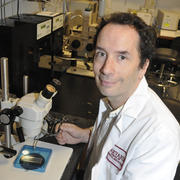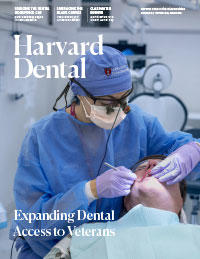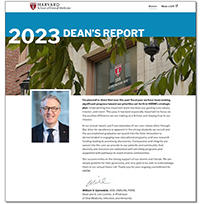
Dr. Malcolm Whitman, PHD87, HSDM professor of developmental biology, and Tracy Keller, SM87, PHD96, an instructor in the Department of Developmental Biology, have identified a chemical compound based on an active ingredient in the root of the blue evergreen hydrangea (Dichroa febrifuga), that could lead to treatment of chronic fibrotic and autoimmune diseases. The root has been used in traditional Chinese medicine for centuries. Whitman and Keller identified the mechanism of action, halofuginone (HF), found within the root.
Now, Allied-Bristol Life Sciences (ABLS) a biopharmaceutical enterprise jointly owned by Allied Minds and Bristol-Myers Squibb Company, has entered into a licensing agreement with Harvard University based on Whitman’s research and intellectual property. The intellectual property includes lead molecules and a differentiated mechanism to develop drugs for treating chronic fibrotic and autoimmune diseases.
"Our research is at the right stage for an infusion of resources and expertise to accelerate its progression," said Dr. Whitman. "We look forward to seeing the development of lead compounds from our laboratories into novel therapeutics for the treatment of fibrotic disease, and potentially other indications."
The licensing agreement with Harvard's Office of Technology Development is among the first in a series of discovery and development projects pursued by ABLS.
"The work done by Whitman and Keller is a terrific example of a promising early-stage therapeutic application that has the potential to make a significant difference to patients," said Satish Jindal, Chief Executive Officer of ABLS. "We are pleased to support this project through the next phase of drug discovery to identify a candidate for clinical development. This is a great example of the type of university research that ABLS looks for, where our expertise and experience can accelerate bringing new therapies to patients that need them."


